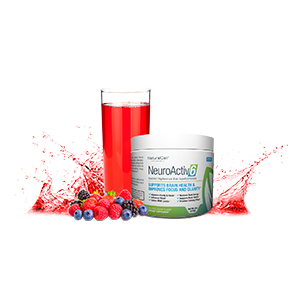
Table of Contents
Your brain and your diet both depend on each other. Read below how they relate to each other
Your brain is constantly active. Even when you’re unconscious part of your brain remains busy at work, processing information and orchestrating various functions. Since it’s ultimately in charge of the rest of your body and senses, it utilizes massive amounts of your body’s energy stores, approximately 20 percent.
It’s obvious how certain foods like those containing sugar or caffeine can affect the brain. When you drink coffee, you pretty rapidly feel more alert and more focused.
However, most foods don’t exert such a noticeable effect immediately after consumption. That’s where research comes in. More and more research has been indicating that the brain, and the rest of the body, responds differently to chronic intake of different foods.
A brief overview
As you’ve probably heard, the best approach to diet involves moderation. Even healthy foods like spinach need to be balanced out by other foods. This is because each food provides a unique profile of nutrients: spinach, for example, is a good source of certain vitamins such as Vitamin A, K, C, Manganese and Folate but is low in other macronutrients such as protein. Chicken, on the other hand, contains high amounts of protein and healthy fats but not nearly as many vitamins and minerals.
Vitamins and minerals all help orchestrate unique functions in the brain and the rest of the body. Therefore, inadequate intake of one vitamin can produce varying effects both mentally and physically.
What should you be eating?
Unfortunately, there is not a single magic food or strict diet that can provide all the nutrients you need. That being said, the best approach to eating is to seek variety- preferably with colorful foods (naturally).
The National Institute of Health recommends the daily intake of nutrients. This is a rough estimate for the average person, meaning these exact numbers should be used more as guidelines and adjusted depending on traits such as gender, height, weight, percent body fat, etc.
The bottom line is a varied mixture of vegetables, fruits, whole grains, dairy and natural sources of proteins should make their way into your daily eating.
What should you not be eating?
While moderation is key to a healthy lifestyle, there are certain foods that are best to limit intake if not avoid altogether. The first is any form of trans fats: artificial trans fats are utilized because they are cheap to produce, long-lasting, and add a satisfying taste. However, they notoriously lower your levels of good cholesterol while raising the bad (1). Trans fats serve no positive contribution to health and if possible should be eliminated from your diet completely.
Other foods such as highly processed meats and snacks, fruits and sweets containing high amounts of added sugars, and packaged foods containing loads of sodium should be consumed in small quantities on rare occasions.
However, managing your diet can be mentally taxing and physically exhausting so remind yourself it’s okay to have a few sweets every once in a while. Just do your best to keep these snacks infrequent and your brain will thank you. Brain supplements like NeuroActiv6 can also help with this issue.

Boost Mental Energy & Focus
Discover how just one glass a day of NeuroActiv6 can increase focus, clarity, and mental energy.
Learn More >>






 EMAIL:
EMAIL:
